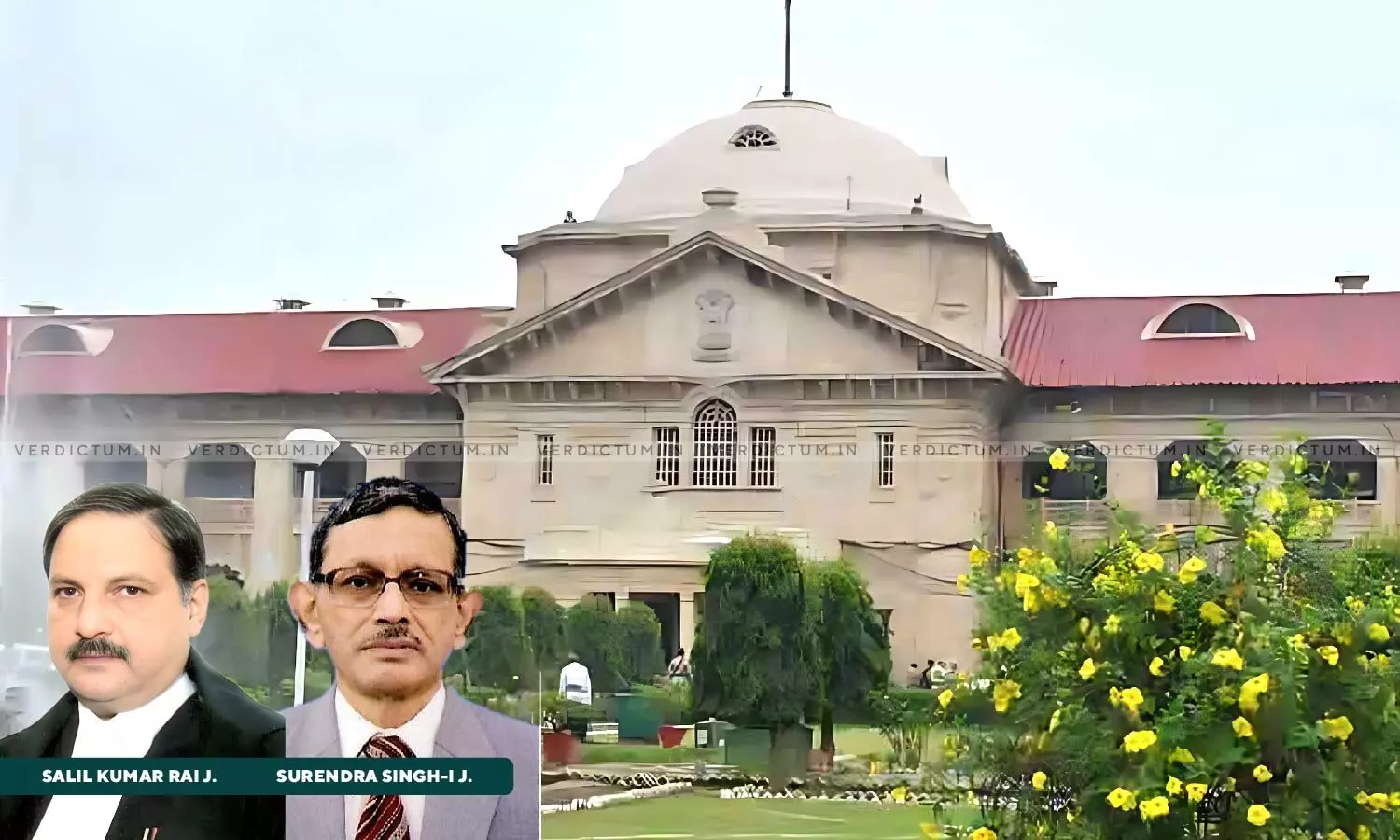
Medical Grant Is A Fundamental Right Under Article 21: Allahabad HC Allows Additional Compensation To Mother & Son In Acid Attack Case
 |
|The Allahabad High Court has allowed an additional compensation to mother and son who suffered burn injuries due to acid attack. It said that the medical grant is a fundamental right under Article 21 of the Constitution.
The said victims had filed a writ petition seeking enhancement of the amount of compensation up to Rs. 26 lakhs to them.
A Division Bench comprising Justice Salil Kumar Rai and Justice Surendra Singh-I held, “It has been well established from the decisions of the Apex Court in the case of Chameli Singh Vs. State of U.P., AIR 1996 SC 1051 and Consumer Education and Research Centre Vs. Union of India, (1995) 3 SCC 42 that medical grant is a fundamental right under the sweep of Article 21 which relates to Right to Life and Personal Liberty of all persons living in India.”
The Bench added that since the mother had submitted her bill vouchers regarding medical expenses incurred in her treatment at a private hospital to the Chief Medical Officer (CMO) or District Magistrate (DM), it was their responsibility to get it verified and make payment thereof.
Advocate Ranjeet Singh appeared on behalf of the petitioners while Advocate S.N. Shukla appeared on behalf of the respondents.
Factual Background -
The acid attack victims prayed for the issuance of a writ, order, or direction in the nature of mandamus commanding and directing the authorities to provide suitable job or employment to the mother according to her educational qualification. They prayed for the direction to provide compensation. The victims sustained serious acid attack injuries, in respect of which an FIR was lodged under Sections 452 and 326 of the Indian Penal Code (IPC) and soon after the incident, the victims were admitted in a hospital where primary medical treatment was given to them.
Thereafter, their plastic surgery was done as burn injuries were sustained by them. The Trial Court convicted the accused and sentenced him. An application was moved by the husband of the victim mother before the District Magistrate to provide financial assistance for the medical treatment. He also approached the National Commission for Women (NCW) but no compensation was given to the victims. The victims belonged to the very poor family having agricultural land as the only means of income for their livelihood. Hence, they were before the High Court.
The High Court in view of the facts and circumstances of the case observed, “… it is clear that the petitioners have been provided a maximum amount of compensation of Rs.5,00,000/- under Niyamavali, 2015 for after care and rehabilitation. The petitioner no.1 further claims payment of compensation of Rs.5,26,000/- which she has incurred in her treatment in Perfect Life Hospital, Mathura and medical expenses incurred in Sawai Maan Singh Hospital, Jaipur. The respondents have objected to the payment of aforesaid amount on the ground that the petitioner has not complied the provisions of Rule 12-ख of the U.P. Niyamavali, 2015 regarding referral by a medical officer of government hospital to a private hospital for treatment. Apart from this, the respondents have objected to that petitioner no. 2 being male child and getting injury by less than 10% in the acid attack, is not entitled for compensation under the Niyamavali, 2015.”
The Court noted that the petitioners had submitted the bill vouchers of Rs. 5,26,000/- regarding medical expenses incurred by them to the DM/CMO for verification and payment but the CMO did not get the bill vouchers verified and did not take steps for payment thereof to the petitioners.
“They kept the bill vouchers with them for a long duration and returned it back to her on the ground that no payment can be made as the bill vouchers were not verified and the petitioners have not complied with Rule 12-ख of the U.P. Niyamavali, 2015”, it said.
The Court, therefore, concluded that the respondents are duty-bound to make payment of the amount of bill vouchers of Rs. 5,26,000/- to the petitioners which they have incurred on their medical treatment of acid attack burn injuries in the private hospital.
Accordingly, the High Court allowed the writ petition and granted compensation.
Cause Title- Kamlesh Devi and Another v. State of U.P. and 2 Others (Neutral Citation: 2024:AHC:12501-DB)